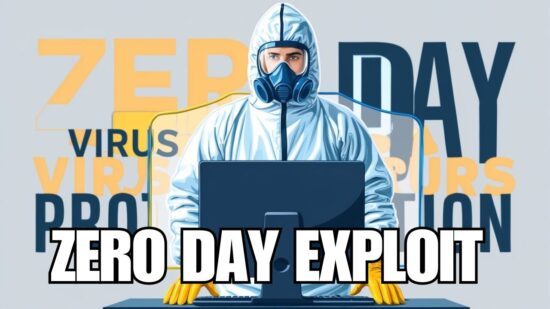How to Protect Your System from Cyber Ransomware Attack?
Ransomware is an advanced form of cyberattack, and one of the most significant threats small and large corporations alike are facing. The aftermath of such attacks can be devastating to a business. Yet, few companies can afford to lose multi-millions, leave alone a few moments of downtime. Unfortunately, the threat of ransomware attacks is increasing, and there is no better time to be proactive about protecting your systems than now.
Ways to Protect Against Ransomware
Defending your systems against ransomware calls for a holistic and approach that brings together all parts of your organization’s system. Here are some protective measures that cybersecurity professionals recommend that you implement.
Update Your Hardware and Software Regularly
If you heavily rely on outdated hardware and software, you put your company at the risk of being attacked. Hackers can effortlessly discover security vulnerabilities in the tools and devise ways to gain access to your system.
While technology companies usually release periodic security updates, there’s no way to verify that users install the updates. This is an area that your company should work on to create awareness among employees on the importance of installing these updates.
One of the reasons why the WannaCry virus was successful was that a large portion of the affected companies had outdated machines. The ransomware targeted several large organizations that were using operating systems no longer supported with updates. While Microsoft had discovered and patched the vulnerability two months before the attack, many companies did not update their devices. This made it possible for the attack to spread rapidly.
Create Frequent Data Backups and Enable System Restore
Backing up your data will help your business get back on its feet if an attack ever happens. You will be at peace knowing that you have a copy of the data hackers just encrypted, safe in a different location. In such a case, you won’t part with a ransom or experience an extended downtime period.
However, you must know how to back up your data the right way. Hackers have a way of infiltrating a backup system by accessing your desktop first, then finding their way into the business network.
The best way to create a data backup is in the Cloud. Alternatively, you can use an offline local storage device. It should not be directly connected to your system. If you choose an external hard drive as your backup location, only connect it when backing up your data and disconnect it immediately.
Using system restore also works effectively to protect you from ransomware. Ensure you enable this feature to be able to use it. It allows you to quickly restore your device to the initial state it was before an attack happened. When you use it immediately after an attack, you can outsmart the ransomware.
Install Strong, Reputable Endpoint Anti-Virus Security
One of the best things you can do to protect your business systems is to have robust endpoint security solutions. These are tools you install on your endpoint devices or the points at which hackers can obtain your data. These include tablets, computers, laptops, workstations, and smartphones. With endpoint anti-virus security platforms, you can effectively protect your devices and enable your IT department to regulate their use.
The solutions work by protecting your systems against malicious downloads. They also alert users when they are about to open risky websites. Their security features include vulnerability assessments, port and device control, and personal firewalls. While these solutions are not guaranteed to be 100% effective, they are a crucial consideration against malware.
Enhance Email Security
Hackers commonly deliver ransomware through email. Hence, the security of your emails inside and outside the gateway is of utmost importance. With secure email gateway technologies, you will effectively filter email communications with URL defenses. Attachment sandboxing also comes in handy to detect threats and block them before they find their way to users. These two are effective strategies that can stop ransomware in its tracks before reaching endpoint devices.
Phishing is also another popular method that hackers use to deliver ransomware. Having secure email gateways can help block phishing attacks, especially when combined with Post-Delivery Protection technology. The latter relies on AI algorithms and machine learning to identify phishing attacks. They display alerts with emails to warn users about suspicious emails to prevent them from opening them.
Invest in Security Awareness Training
The weakest point of entry for a cybercriminal is always said to be the employees. Hackers rely on the human element more than anything else to access your information. Unfortunately, your employees may not take the security of your systems with the same seriousness you do. This is why investing in security awareness training should be a priority for your business.
Strive to create a culture of vigilance as far as cybersecurity is concerned. Your team must be well-informed on issues like identifying suspicious emails and links. They also should avoid downloading attachments whose source they don’t know. Ultimately, it should be ingrained within them that the overall security of the business systems lies with them.
Whitelist Computer Applications
Whitelisting computer applications refers to allowing the installation of a specific set of websites and programs. The practice blocks the visitation or installation of everything not specified in the list. You begin by scanning your devices to identify all the legitimate apps. Next, you configure it to prevent any additional apps from being installed.
Alternatively, you can install an ad-blocker and script-blocker to prevent java and ads, whitelisting only those sites you think are safe and appropriate.
Final Thoughts
The best way to deal with a ransomware attack is to prevent it from happening in the first place. For you to achieve a high-security level, use a layered approach in securing your systems. This means using a combination of data backup, recovery, and restore options, enhancing email security, and installing robust endpoint security solutions.
All this can be a lot of work for a small business without enough resources for enhanced cybersecurity. However, working with a professional cybersecurity company will help protect your systems round the clock. During this time, when ransomware attacks are at an all-time high, don’t remain complacent about the security of your system. Contact an expert at On-Site Computers for a comprehensive assessment of your cybersecurity needs.






